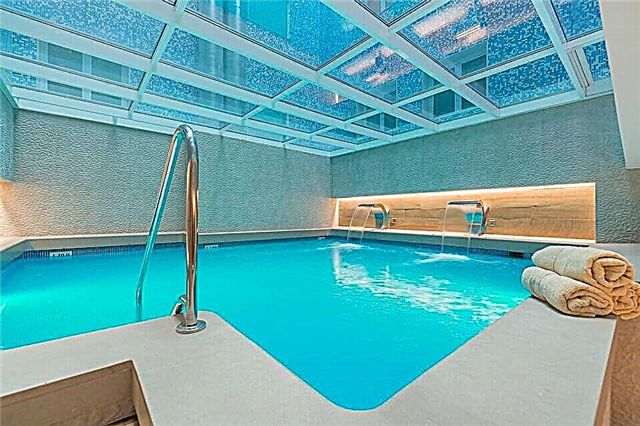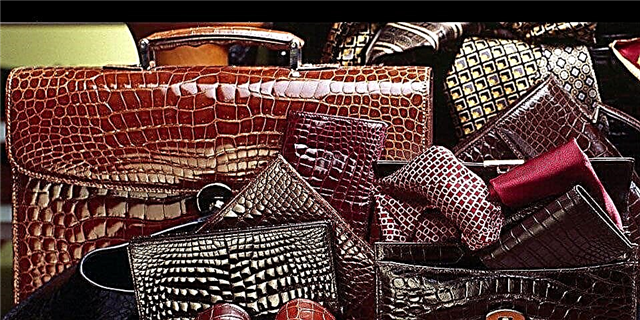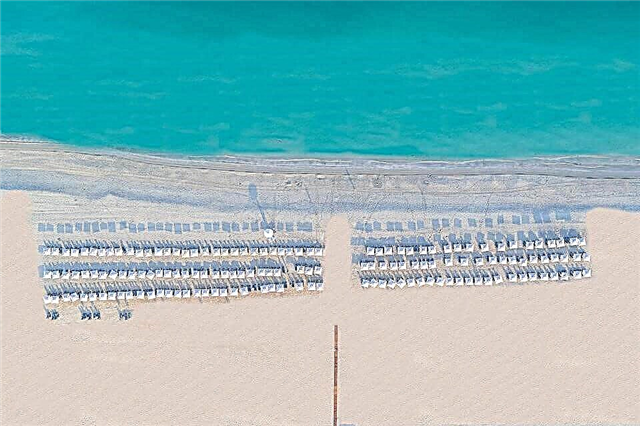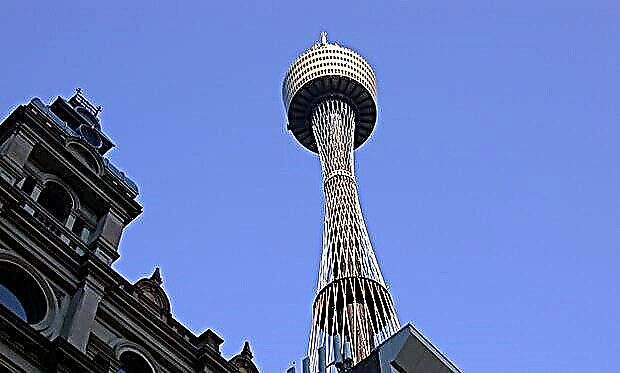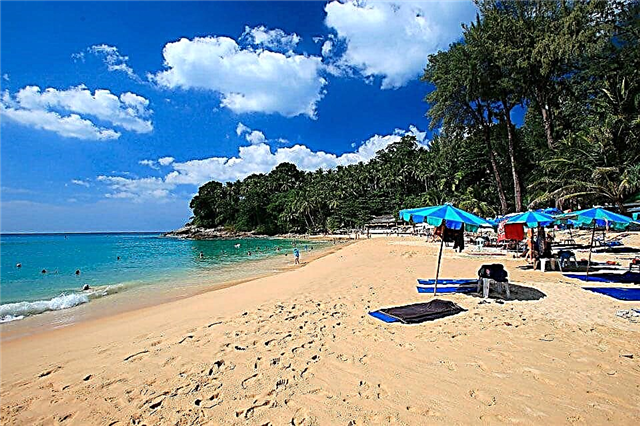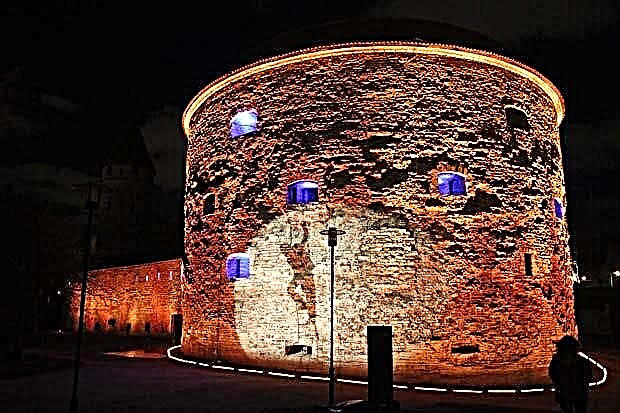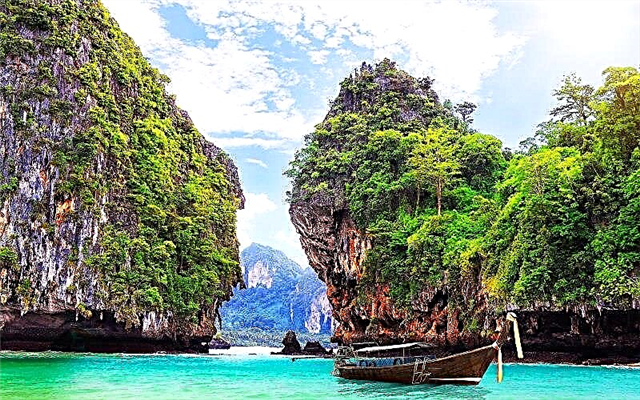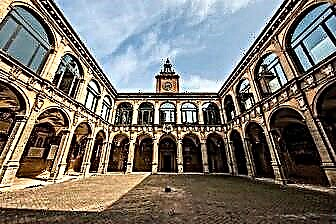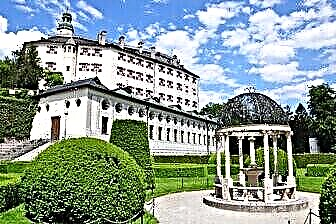Innsbruck is surrounded by majestic mountain ranges on all sides. Above all, the city is known as a first-class ski resort and the site of three Winter Olympics. With the start of the season, numerous skiers and snowboarders come here to experience the excellent trails.
However, Innsbruck has much more to offer tourists than just skiing on the snowy slopes. This picturesque Tyrolean town is lined with Baroque mansions from the Habsburg period and is filled with the special spirit of the Austrian province, where the way of life may not change for centuries.
The Hofburg Palace and Helblinghaus, the Arc de Triomphe on Maria Theresa Street and the Cathedral of St. James - all this is the legacy of the brilliant imperial era, carefully preserved by descendants. The fabulous Swarovski Crystal Museum is able to amaze the most sophisticated imagination, and the magnificent views of the Alpine valleys will remain in your memory for a long time.

The best hotels and hotels at affordable prices.
from 500 rubles / day
What to see and where to go in Innsbruck?
The most interesting and beautiful places for walking. Photos and a short description.
Ambras Castle
The history of the castle began in the 12th century. In those days, it was a harsh medieval fortress. Under Archduke Ferdinand II in the 16th century, Ambras was rebuilt by Italian architects in accordance with the canons of the Renaissance. After the completion of the construction, the ruler placed his collection of works of art in the castle, many of which adorn the best museums in Austria today. Part of the collection remained on the territory of Ambras and today is available for inspection.

Hofburg Imperial Palace
The palace complex that belonged to members of the Habsburg dynasty. Until the XIV century, even under the Tyrolean counts, medieval defensive structures were located on its territory. The construction of the palace was completed under Maximilian I at the turn of the 15th and 16th centuries. After the abolition of the monarchy, the complex was transferred to the state. Nowadays, official events are periodically held in the Hofburg. Part of the chambers of the palace is given over to the museum.

Maria Theresa street
The alley is named after the Archduchess Maria Theresa of the Garsburg dynasty. It is one of the central streets of Innsbruck, where it is almost always noisy and crowded. At the beginning of the alley, there is the triumphal arch of Franz Stephen of Lorraine. One of the iconic monuments here is the 1706 Column of St. Anne, which is dedicated to the liberation of Tyrol from the Bavarian army. The obelisk is crowned with a statue of the Virgin Mary and is surrounded by the figures of four saints.

Triumphal Arch
The monument is erected at the entrance to Maria Theresa street. It was created in 1765 in honor of the marriage of Archduke Leopold and Princess Maria Louise. However, before the wedding, the husband of Maria Theresa Franz I died, so the arch commemorates not only a happy marriage, but also acts as a memorial monument in honor of the emperor. The arch is decorated with bas-reliefs depicting representatives of the Habsburg dynasty, as well as state emblems.

"Golden Roof"
House-residence of the Tyrolean kings, built in the 15th century. It got such a poetic name thanks to the gold-colored tiles that cover the roof of the large external balcony on the front façade. The roof tiles have survived to this day; for more than five centuries, the coating has undergone only minor reconstructions. Today, the residence houses a museum, where personal belongings of emperors, court costumes, furniture and household items are exhibited.

Helblinghouse
Luxurious mansion with a Rococo facade located in the center of Innsbruck. The building was erected in the 15th century under Frederick IV; it acquired its modern appearance only in 1730. The Gothic facade of the house was rebuilt by order of its owner J. Fischer. The architect A. Gigl decorated the walls with rich stucco moldings and remade the roof, retaining only the arches of the first floor from the original appearance. Helblinghaus is still a residential building.

City tower
The structure was erected in the middle of the 15th century for purely practical purposes - monitoring the approaches to the city, determining the place of the outbreak of a fire, etc. Moreover, members of the Innsbruck government worked in the premises inside the tower. The reconstruction of the building was carried out in the 70s. XX century. There is an observation deck at the top, where a staircase of 150 steps leads.

Tyrolean Museum of Folk Art
After examining the museum exposition, the visitor will have a complete picture of the ethnographic heritage of the historical region of Tyrol. The collection exhibits interior items, clothing, artisan crafts, tableware, furniture and other exhibits that recreate the atmosphere of the past centuries. The museum was created in 1888 at the initiative of the trade association of the city of Innsbruck. In 1926, the exposition moved to the territory of the former Franciscan monastery.

Ferdinandeum Museum
The exposition is housed in a building located near the Hofburg Palace. The museum is named after Ferdinand II, the Austrian Archduke revered in Innsbruck. This ruler was a philanthropist and collector. He collected valuable works of art in his Ambras palace, which were later donated to various museums. Ferdinandeum boasts an extensive collection of artifacts from the Roman Empire and the Middle Ages.

Grassmire Bells Museum
The exposition of the museum consists of bells collected by the Grassmire family. Representatives of this family have been making bells for 400 years. During this time, the craftsmen have developed a unique ebb technology, which makes it possible to make copies that emit melodic sounds. An integral part of the museum is a foundry, where they are engaged in the restoration of old bells and the creation of new ones.

Museum "Panorama of Tyrol"
The museum building is located on the top of the Bergisel hill, where in 1809 the invincible Napoleonic army faced a handful of brave Tyrolean peasants led by the brave A. Gopher. Despite the numerical superiority, the Tyroleans still managed to defeat the enemy. The exhibition "Panoramas of Tyrol" is dedicated to this heroic feat. A monument to A. Gofer was erected near the museum building.

Crystal worlds "Swarovski"
Not far from Innsbruck in Wattens is the Swarovski Crystal Museum, opened in 1995 for the 100th anniversary of the brand. Previously, a factory was located here. The exposition of the museum is a magnificent installation made of crystals, over which famous designers have worked. The collection is united by the concept of the giant's fabulous underground kingdom, filled with wonders and treasures. The entrance to the territory of the museum is made in the form of a giant's head with eyes made of green stones.

Cathedral of Saint James
The main Catholic church in Innsbruck, built in the early 18th century in the Baroque style. The first Romanesque church on the site of the cathedral has existed since the 12th century. The interior of the cathedral can be confidently called one of the most beautiful in Austria. It is decorated with frescoes, stucco and sculptures. During the Second World War, the building was badly damaged due to bombing, but was soon restored.

Basilica and monastery of Wilten
The first mentions of the monastery date back to the 9th century, but the creation of a full-fledged abbey took place later - in the first half of the 12th century. The basilica was built towards the end of the 17th century, when the monastery reached its peak. The temple is executed in the graceful style of the "Austrian" Baroque. The monastery complex is located about 2.5 km from the center of Innsbruck at the foot of the Bergisel mountain.

Hofkirche church
The temple is located in the historic center of Innsbruck in the immediate vicinity of the Hofburg Palace. It was built in memory of Emperor Maximilian I. The building was erected in accordance with the canons of the Renaissance style. The interior space is dominated by baroque features. The basilica houses a memorial ketonaf (sarcophagus free) of Maximilian I made of black marble.

Hofgarten park
In the 15th century, on the site of a modern park, a court garden was located, from where vegetables and herbs were delivered to the imperial table. Centuries later, a magnificent landscape park was laid out in the English style with flower beds, lawns and pavilions for relaxation. There is a group of trees in the park that were planted by the Archduchess Maria Theresia herself. The Hofgarten is located next to the royal palace.

Alpine zoo
Alpine zoo, where 150 species (more than 3 thousand individuals) of representatives of the alpine fauna live, many of which are on the verge of extinction. Goats, cows and sheep also live here. The menagerie was founded by the zoologist H. Psenner in the 1960s. in order to preserve the species diversity of the fauna of the Alps. Educational and research programs operate under the auspices of the zoo.

Springboard "Bergisel"
Bergisel is used for the 3rd stage of the Ski Jumping World Cup. The very first competitions took place in 1925. The Olympic flame was lit here three times. A large-scale reconstruction of the springboard was carried out in the period 2001-2002. under the direction of the famous architect Zaha Hahid. The ski jump complex has an observation deck and a panoramic restaurant, which can be reached by funicular or by walking up the stairs.

Funicular "Hungerburgbahn"
The Hungerburgbahn connects the center of Innsbruck with the Hungerburg region. He is another creation of the talented Zaha Hahid. The funicular makes four stops along the way. The last station is located at an altitude of 860 meters, from where the Nordpark ski area begins. The modern funicular was built to replace the old mechanism that functioned properly from 1906 to 2005.

Nordkettenbahn cable car
The road leads to the top of the Hafelekar mountain, whose height is 2334 meters above sea level. During the ride in the cabins, passengers have dizzying views of Innsbruck, the Oberes Intal valley and the 3800-meter Grossglockner Peak. The cable car consists of the Hungerburg, Seegrube and Hafelekar stations located at different levels. It will be interesting to ride on it not only for skiers, but also for ordinary tourists.


